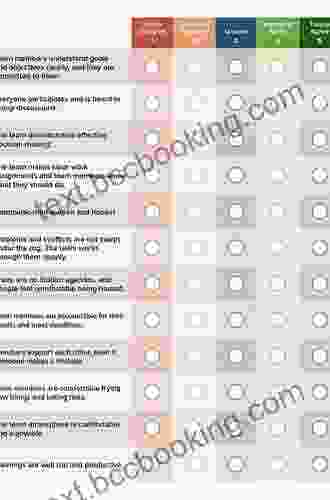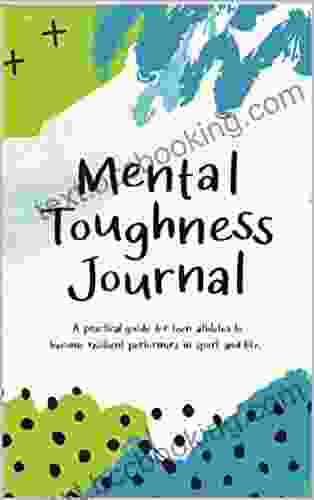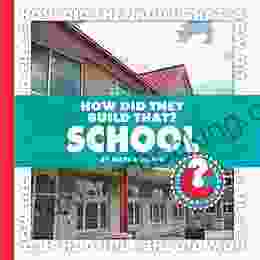Unveiling the Secrets of Effective Team-Based Assessment: A Comprehensive Exploration

5 out of 5
| Language | : | English |
| File size | : | 5550 KB |
| Text-to-Speech | : | Enabled |
| Screen Reader | : | Supported |
| Enhanced typesetting | : | Enabled |
| Word Wise | : | Enabled |
| Print length | : | 299 pages |
In today's dynamic and interconnected world, the ability to work effectively in teams is paramount. Education must adapt to this reality, empowering students with the skills and knowledge they need to thrive in collaborative environments. Team-based assessment is a powerful tool that can enhance learning, foster collaboration, and prepare students for the demands of the 21st century workforce.
This comprehensive field guide provides a roadmap for educators seeking to implement and optimize team-based assessment in their classrooms. Through a blend of research-based insights, practical strategies, and real-world examples, we will explore the key elements of effective team-based assessment, addressing everything from group formation to grading and feedback.
Benefits of Team-Based Assessment
- Improved Learning Outcomes: Team-based assessment fosters deeper engagement with the material, encouraging students to apply their knowledge and skills in practical scenarios.
- Enhanced Collaboration: Teams provide a platform for students to develop interpersonal skills, learn from each other, and build stronger relationships.
- Meaningful Assessment: Teams can tackle complex tasks that would be difficult for individuals to complete, resulting in more authentic and meaningful assessments.
- Preparation for the Workplace: Team-based assessment mirrors the collaborative nature of the workplace, preparing students for the challenges and opportunities of real-world teamwork.
Key Elements of Effective Team-Based Assessment
1. Purposeful Group Formation
Effective team-based assessment begins with creating teams that are balanced and productive. Consider factors such as diversity of skills, learning styles, and personalities when assigning students to groups.
2. Clear Instructions and Expectations
Students need to understand the purpose of the assessment, the roles and responsibilities of each team member, and the assessment criteria. Clear communication is essential to ensure everyone is on the same page.
3. Structured Team Processes
Teams function best when they have clear processes for communication, task allocation, and decision-making. Establish team norms, meeting schedules, and guidelines for conflict resolution.
4. Individual Accountability
While collaboration is essential, individual students must still be held accountable for their contributions. Use rubrics or peer assessment to assess individual performance within the team context.
5. Formative and Summative Assessment
Team-based assessment should include both formative (ongoing feedback) and summative (final evaluation) components. Formative assessment provides opportunities for teams to adjust and improve their work, while summative assessment measures their overall performance.
6. Reflective Practice
Reflection is crucial for students to learn from the team-based assessment experience. Encourage teams to discuss what went well, what challenges they faced, and how they could improve their performance in the future.
Strategies for Implementing Team-Based Assessment
1. Gradual Integration
Start by incorporating small team-based activities into existing assessments or assignments. This allows students to become comfortable with the process before tackling larger projects.
2. Variety of Assessment Formats
Use a variety of assessment formats to cater to different learning styles and project objectives. Consider projects, presentations, reports, debates, or simulations.
3. Technology Integration
Technology can enhance team collaboration and communication. Utilize online platforms for sharing documents, managing tasks, and holding virtual meetings.
4. Professional Development
Invest in professional development to improve your skills in designing and implementing team-based assessments. Seek out workshops, conferences, or online resources.
Team-based assessment is a powerful tool that can transform teaching and learning. By embracing the principles and strategies outlined in this field guide, educators can create assessments that are engaging, collaborative, and meaningful for their students. As we prepare our students for the complexities of the 21st century, let us embrace the potential of team-based assessment to foster their success both inside and outside the classroom.
Unlock the full potential of team-based assessment with our comprehensive field guide.
5 out of 5
| Language | : | English |
| File size | : | 5550 KB |
| Text-to-Speech | : | Enabled |
| Screen Reader | : | Supported |
| Enhanced typesetting | : | Enabled |
| Word Wise | : | Enabled |
| Print length | : | 299 pages |
Do you want to contribute by writing guest posts on this blog?
Please contact us and send us a resume of previous articles that you have written.
 Book
Book Novel
Novel Page
Page Chapter
Chapter Text
Text Story
Story Genre
Genre Reader
Reader Library
Library Paperback
Paperback E-book
E-book Magazine
Magazine Newspaper
Newspaper Paragraph
Paragraph Sentence
Sentence Bookmark
Bookmark Shelf
Shelf Glossary
Glossary Bibliography
Bibliography Foreword
Foreword Preface
Preface Synopsis
Synopsis Annotation
Annotation Footnote
Footnote Manuscript
Manuscript Scroll
Scroll Codex
Codex Tome
Tome Bestseller
Bestseller Classics
Classics Library card
Library card Narrative
Narrative Biography
Biography Autobiography
Autobiography Memoir
Memoir Reference
Reference Encyclopedia
Encyclopedia Mark A Raider
Mark A Raider Will Dodson
Will Dodson Mark Goldstein
Mark Goldstein Mark Tepper
Mark Tepper Kerry Keene
Kerry Keene Samantha Seiple
Samantha Seiple Sonja Schwartzbach
Sonja Schwartzbach William Mobberley
William Mobberley Thomas R Martin
Thomas R Martin Steven Pustay
Steven Pustay Marina Umaschi Bers
Marina Umaschi Bers Meghan Vestal
Meghan Vestal Marten Sethaven
Marten Sethaven Mark Franko
Mark Franko Martin Heidegger
Martin Heidegger Mario Cleves
Mario Cleves Victor Manibo
Victor Manibo Matthew Bowling
Matthew Bowling Martin Mosebach
Martin Mosebach Mark Rubinstein
Mark Rubinstein
Light bulbAdvertise smarter! Our strategic ad space ensures maximum exposure. Reserve your spot today!
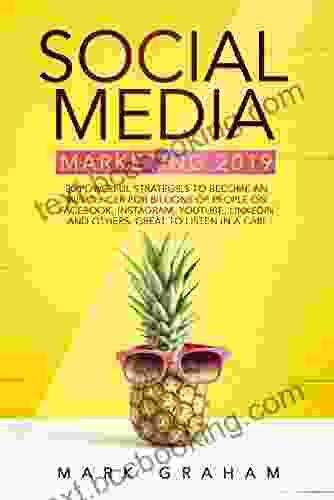
 Henry Wadsworth Longfellow30 Powerful Strategies to Become an Influencer for Billions of People
Henry Wadsworth Longfellow30 Powerful Strategies to Become an Influencer for Billions of People Robin PowellFollow ·7.1k
Robin PowellFollow ·7.1k John Dos PassosFollow ·12.9k
John Dos PassosFollow ·12.9k Oscar WildeFollow ·13.5k
Oscar WildeFollow ·13.5k George R.R. MartinFollow ·3.5k
George R.R. MartinFollow ·3.5k Camden MitchellFollow ·4.5k
Camden MitchellFollow ·4.5k Fredrick CoxFollow ·4.7k
Fredrick CoxFollow ·4.7k Thomas PowellFollow ·10.6k
Thomas PowellFollow ·10.6k David BaldacciFollow ·8.8k
David BaldacciFollow ·8.8k

 Larry Reed
Larry ReedGwendy's Final Task: A Thrilling Conclusion to a Timeless...
Prepare to be...
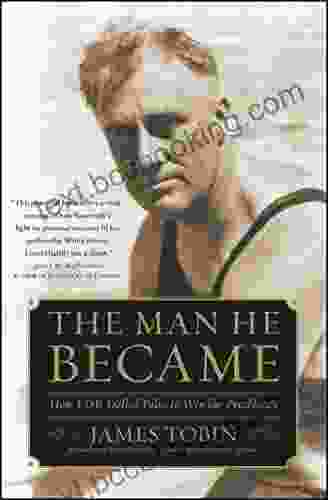
 Victor Turner
Victor TurnerHow FDR Defied Polio to Win the Presidency
Franklin D. Roosevelt is...

 Edwin Cox
Edwin CoxWinner RGS BBC Journey of a Lifetime Award: An Inspiring...
In the heart of the world's...

 Griffin Mitchell
Griffin MitchellEverything You Need to Know, You Learned From Mister...
Mister Rogers' Neighborhood was a beloved...
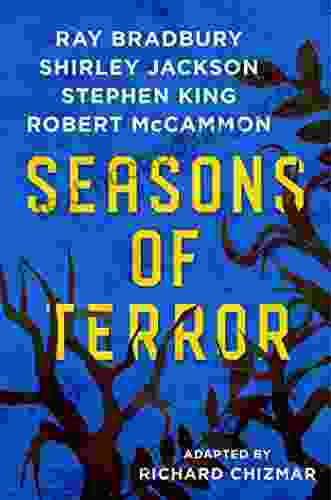
 Beau Carter
Beau CarterSeasons of Terror: A Spine-Tingling Odyssey into the...
In the realm of horror...
5 out of 5
| Language | : | English |
| File size | : | 5550 KB |
| Text-to-Speech | : | Enabled |
| Screen Reader | : | Supported |
| Enhanced typesetting | : | Enabled |
| Word Wise | : | Enabled |
| Print length | : | 299 pages |


